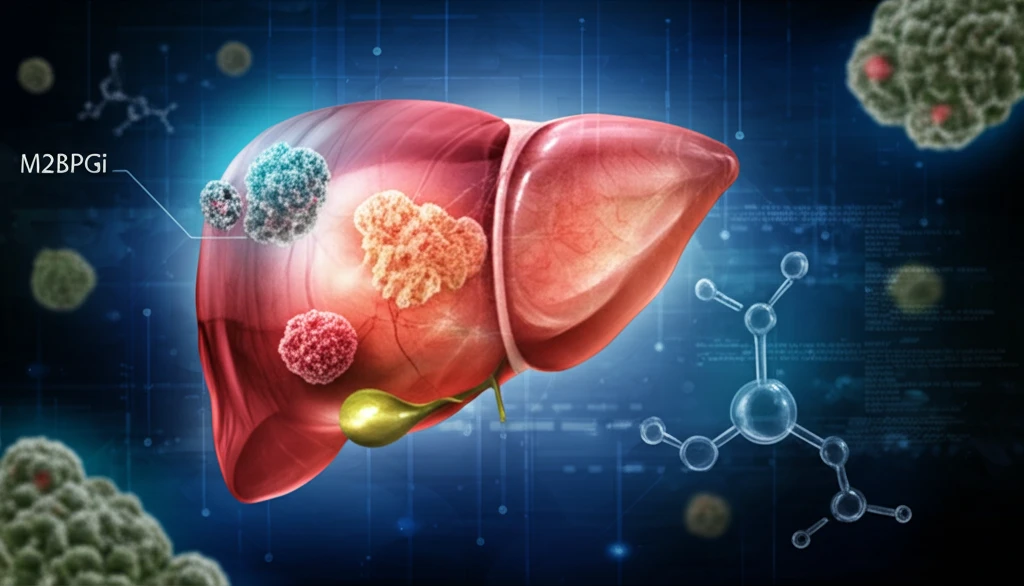
Decoding Liver Health: Can M2BPGi Levels Predict Cancer Risk After Hepatitis B Treatment?
"A groundbreaking study reveals how monitoring M2BPGi could revolutionize hepatocellular carcinoma prediction in chronic hepatitis B patients undergoing antiviral therapy."
Chronic hepatitis B (CHB) affects millions worldwide and poses a significant risk of developing hepatocellular carcinoma (HCC), a primary liver cancer. While antiviral therapies have greatly improved outcomes for CHB patients, the risk of HCC isn't entirely eliminated. This is where biomarkers like Mac-2 binding protein glycosylation isomer (M2BPGi) come into play, offering a potential tool for refined risk assessment.
M2BPGi is a liver-specific isoform of Mac-2 binding protein. Recent research highlights it as a promising biomarker for evaluating liver fibrosis and predicting liver disease progression. The level of M2BPGi in the blood reflects the condition of the liver, but how it changes with antiviral treatment and how it relates to cancer risk is still under investigation.
A new study published in 'Alimentary Pharmacology & Therapeutics' sheds light on M2BPGi's role in patients with CHB undergoing oral antiviral therapy. Researchers followed a cohort of patients, tracking changes in M2BPGi levels and their connection to the development of HCC. The findings have implications for how doctors monitor and manage patients with CHB.
How Does M2BPGi Change with Antiviral Treatment and Why Does It Matter?

The study enrolled 384 patients with previously untreated CHB who started antiviral therapy. Researchers collected blood samples at the beginning of treatment and then annually for two years, measuring M2BPGi levels and monitoring the patients for HCC development. The researchers found:
- Significant Decline: M2BPGi levels significantly decreased after antiviral therapy.
- First Year Impact: The most substantial reduction in M2BPGi occurred during the first year of treatment.
- Cirrhosis Matters: Patients with cirrhosis had higher M2BPGi levels than those without, underscoring the importance of liver condition.
The Future of Liver Cancer Prediction: Personalizing Care with M2BPGi
This study provides valuable insights into how M2BPGi can be used to assess liver health and predict HCC risk in CHB patients undergoing antiviral therapy. By measuring M2BPGi levels at baseline, doctors can identify high-risk individuals and tailor their monitoring and treatment strategies accordingly, potentially improving outcomes and saving lives. More studies are needed to validate these results and explore how M2BPGi can be integrated into routine clinical practice.
